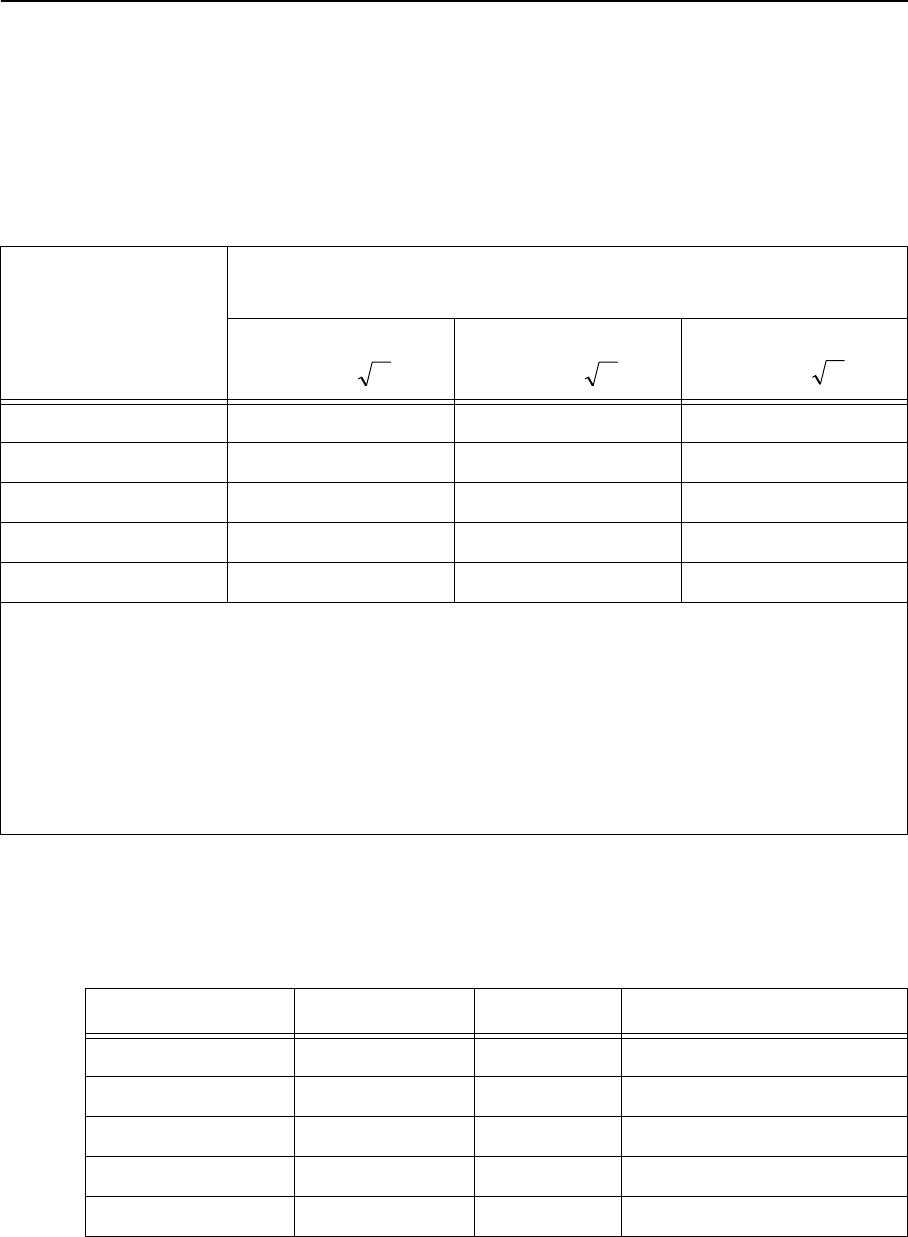
Safety Information
(5)
Recommended Separation Distances
The CXDI-55G is intended for use in an electromagnetic environment in which radiated RF
disturbances are controlled. The user of the CXDI-55G can help prevent electromagnetic
interference by maintaining a minimum distance between portable and mobile RF communica
-
tions equipment (transmitters) and the CXDI-55G as recommended below, according to the
maximum output power of the communications equipment.
NOTE 1: To maintain the optimum EMC performance, use only the cables which are designated.
NOTE 2: Do not install the CXDI-55G and Power Box (CXDI SYSTEM II) adjacent to or stacked on top
of or underneath any other system devices.
NOTE 3: Essential Performance in terms of Electromagnetic Disturbances
• No adverse effects on image acquisition
• No adverse effects on image data transmission
Rated maximum
output power of
transmitter
W
Separation distance according to frequency of transmitter
m
150 kHz ~ 80 MHz 80 MHz ~ 800 MHz 800 MHz ~ 2.5 GHz
0.01 0.12 0.12 0.23
0.1 0.38 0.38 0.73
1 1.2 1.2 2.3
10 3.8 3.8 7.3
100 12 12 23
For transmitters rated at a maximum output power not listed above, the recommended separation
distance d in metres (m) can be estimated using the equation applicable to the frequency of the
transmitter, where P is the maximum output power rating of the transmitter in watts (W) according to
the transmitter manufacturer.
NOTE 1: At 80 MHz and 800 MHz, the separation distance for the higher frequency range applies.
NOTE 2: These guidelines may not apply in all situations. Electromagnetic propagation is affected
by absorption and reflection from structures, objects and people.
Name Type of shield Length Notes
Power cable Non-shielded 3 m Provided with Power Box
Sensor cable Shielded 7.8 m Provided with the Sensor Unit
X-ray interface cable Non-shielded 20 m Provided with Power Box
Remote switch cable Non-shielded 20 m Provided with Power Box
LAN cable Non-shielded Max. 20 m Not provided
P=d
2.1
P=d
2.1
P=d
3.2


















